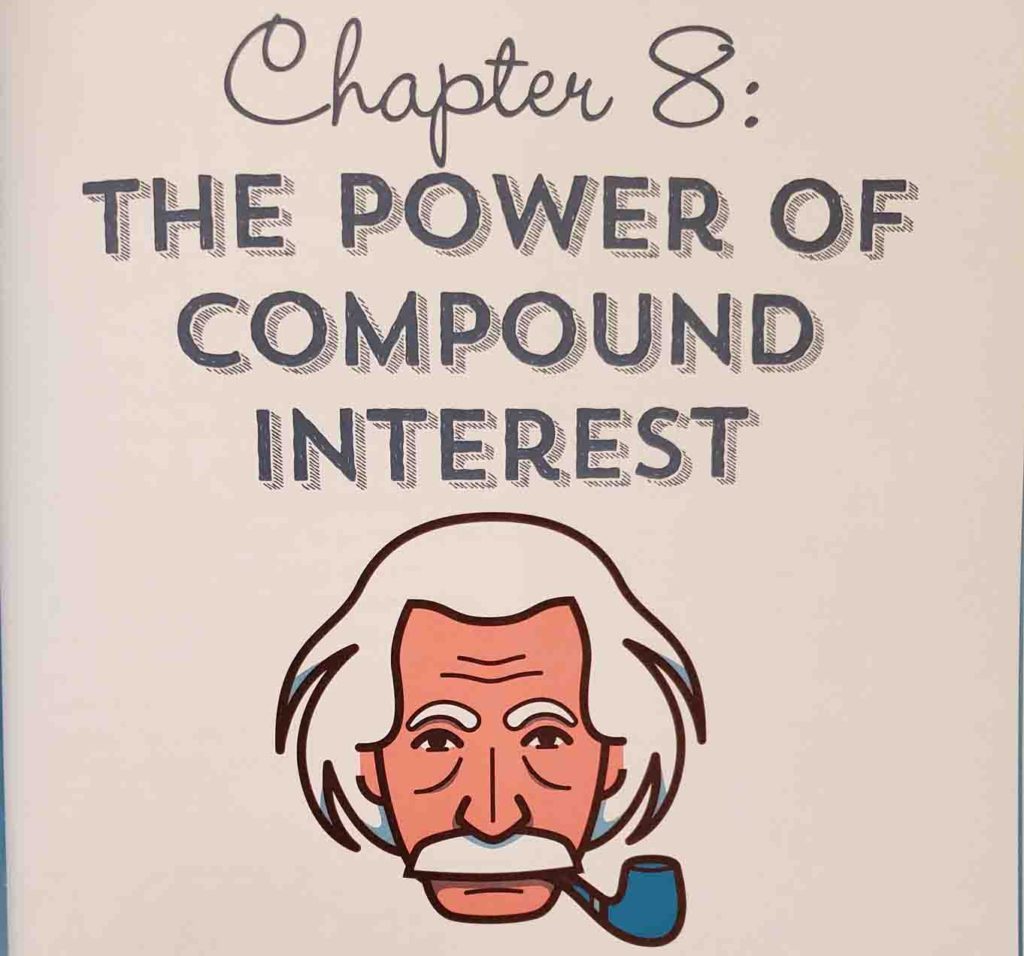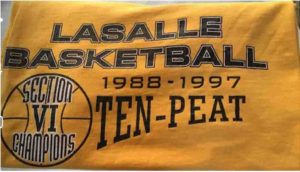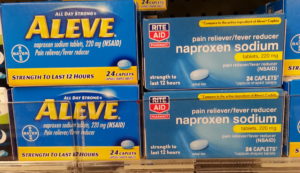 Keeping with the title of my blog, this page is dedicated to ‘Big Words’ which I’ve chosen to highlight, and what their significance is – words that may not be obvious to the everyday person, but which are important and can open doors to new realms of knowledge, thinking and understanding. Most of these words have been the basis for my posts and will be related back those specific posts. Some of these definitions have come straight out of Webster’s or Merriam’s dictionaries, or from websites like Investopedia. Others have been pulled from other sources, and are common knowledge in some cases.
Keeping with the title of my blog, this page is dedicated to ‘Big Words’ which I’ve chosen to highlight, and what their significance is – words that may not be obvious to the everyday person, but which are important and can open doors to new realms of knowledge, thinking and understanding. Most of these words have been the basis for my posts and will be related back those specific posts. Some of these definitions have come straight out of Webster’s or Merriam’s dictionaries, or from websites like Investopedia. Others have been pulled from other sources, and are common knowledge in some cases.
 ADME/Drug Metabolism: The biomedical science that characterizes how a chemical or xenobiotic is absorbed, distributed, metabolized and excreted into and from the body.
ADME/Drug Metabolism: The biomedical science that characterizes how a chemical or xenobiotic is absorbed, distributed, metabolized and excreted into and from the body.
ADME/Drug Metabolism is one of the cornerstones for the sciences of Pharmacology and Toxicology. It deals with where a chemical goes in the body, what happens to it once inside the body and how it is eliminated from the body. This information is very important in characterizing a chemical or drugs therapeutic benefit and or toxicity. I go into greater depth about this exciting field in my post titled A look at STEM: What is ADME/Drug Metabolism?
Archetype: According to Webster’s Ninth New Collegiate Dictionary, an Archetype is; the original pattern or model of which all things of the same type are representations or copies: Prototype; also: a perfect example; an inherited idea or mode of thought in the psychology of C.G. Jung that is derived from the experience of the race and is present in the unconscious of the individual.
 As a black man from the eastside of Buffalo, NY who has earned a STEM degree, this Big Word has significance for me as I run counter to many of the Archetypes of black men in our society. As described in many of my writings, while my education and ability to use the ‘King’s English’ at an early age have helped my professional advancement, they have also had ramifications within my race. See: The Story of My Blog, The Benefits and Challenges of Using Articulate Speech, and my post entitled: Are You Cooning? Archetypes are powerful in that they shape how we see each other in addition to how others see us.
As a black man from the eastside of Buffalo, NY who has earned a STEM degree, this Big Word has significance for me as I run counter to many of the Archetypes of black men in our society. As described in many of my writings, while my education and ability to use the ‘King’s English’ at an early age have helped my professional advancement, they have also had ramifications within my race. See: The Story of My Blog, The Benefits and Challenges of Using Articulate Speech, and my post entitled: Are You Cooning? Archetypes are powerful in that they shape how we see each other in addition to how others see us.
Articulate: Divided into syllables or words meaning-fully arranged; able to speak; expressing oneself readily, clearly, or effectively; to utter distinctly; to give clear and effective utterance.
This Big Word is the basis for my blog post The benefits and challenges of using articulate speech. Being articulate is a particularly important attribute when working in a STEM career where one must have a command of a highly complex and technical vocabulary, and be able to communicate their expertise and findings to all audiences.
 Basic Research and Basic Sciences: The foundations of any of our commercial scientific and technological innovations are the Basic Sciences and Basic Research. Basic Research is simply the pursuit of new knowledge and the understanding of a specific area of focus.
Basic Research and Basic Sciences: The foundations of any of our commercial scientific and technological innovations are the Basic Sciences and Basic Research. Basic Research is simply the pursuit of new knowledge and the understanding of a specific area of focus.
Our four most foundational Basic Sciences are Biology, Chemistry, Physics and Mathematics. Everything else pretty much spins off from these four pillars. My training for example is in Pharmacology and Toxicology. I wrote a post about Basic Research and the Basic Sciences because a major focus of my blog is STEM and increasing awareness for kids with similar backgrounds to my own. Not only are these rewarding careers, but today they are also some of the highest paying.
 Blockchain Technology: Blockchain is a new ‘distributed ledger’ technology. Its three main attributes are: it creates a shared digital record, addition to the record is permissioned, and its transactions are very secure.
Blockchain Technology: Blockchain is a new ‘distributed ledger’ technology. Its three main attributes are: it creates a shared digital record, addition to the record is permissioned, and its transactions are very secure.
Blockchain Technology is literally changing the way business is conducted, and the way records are being kept. We’re very early in this technology and it is going to touch pretty much every industry. I discuss blockchain technology in greater detail in my post titled A look at STEM: Blockchain technology, a new way of conducting business and record keeping.

Branding: In short, Branding is a means of distinguishing yourself, your content or your product. For further discussion on it, I will defer to Investopedia which separates it out into “Brand Identity” and “Brand Image”.
One could argue that we each create a personal brand in our daily lives and even on our jobs. Your personal brand is the image perceived by others and must thus always be protected. If not, there are consequences. In the world of business, your branding is critical especially when you’re creating some sort of intellectual property that you’re marketing to the masses, in the presence of business competitors. Numerous pieces on branding have been published right here on the Big Words Blog Site. Just type “brand” or “branding” into the search box in the right-hand column of my blog platform and start learning about this fascinating concept.
Cheap: Purchasable below the going price or the real value; charging or obtainable at a low price; depreciated in value; gained with little effort; of inferior quality or worth; contemptible because of lack of any fine, lofty or redeeming qualities; stingy; yielding small satisfaction; paying or able to pay less than the going prices.
This Big Word was one of two words that were the basis of my post The difference between being cheap and frugal. As you can see, cheap has many different definitions and connotations. It’s often used as an adjective assigned to people perceived as being stingy and miserly, and their spending habits/behaviors in an unflattering way.
Compounding Interest: According to Investopedia, the Law of Compounding Interest is a mathematical and financial process of generating more return on an asset’s reinvested earnings. To work, it requires two things: the reinvestment of earnings and time. Compound interest can help your initial investment grow exponentially. For younger investors, it is the greatest investing tool possible.
 I wrote an entire piece on the Law of Compounding Interest. It’s not a new concept, but because I wasn’t exposed to it at an early age, I didn’t take advantage of the law when I first started my science career. Fortunately, I found a mentor who cared enough about me to impress its importance upon me and encouraged me to start using it. Those individuals who understand the law and start taking advantage of it early in their lives, stand to become very, very wealthy later on.
I wrote an entire piece on the Law of Compounding Interest. It’s not a new concept, but because I wasn’t exposed to it at an early age, I didn’t take advantage of the law when I first started my science career. Fortunately, I found a mentor who cared enough about me to impress its importance upon me and encouraged me to start using it. Those individuals who understand the law and start taking advantage of it early in their lives, stand to become very, very wealthy later on.
 Doxxing: This definition was derived from the Urban Dictionary. Doxxing, by way of “name-dropping”, is document (doxx) dropping. It’s publicly exposing someone’s real name or address on the internet who has taken pains to keep them secret. It’s also spelled “doxing”.
Doxxing: This definition was derived from the Urban Dictionary. Doxxing, by way of “name-dropping”, is document (doxx) dropping. It’s publicly exposing someone’s real name or address on the internet who has taken pains to keep them secret. It’s also spelled “doxing”.
Since spending more time in the YouTube spaces, I’ve become aware of doxxing. It occurs when individuals have issue with what a given content creator is saying and want to silence the individual at all costs. The aggrieved individuals research the content creator and his or her family, their background and whereabouts specifically and then expose them, hoping to cause harm or to scare the content creator away from their platform and messaging.
Dynasty: According to Webster’s Ninth New Collegiate Dictionary, a Dynasty is a succession of rulers of the same line of descent; a powerful group or family that maintains its position for a considerable time.
 This Big Word was the basis for my interviews with legendary basketball coach Pat Monti and one of his greatest point guards Tim Winn – both from LaSalle Senior High School in Niagara Falls, NY. In my era playing high school basketball in Western New York, LaSalle was the dominate basketball program – regularly pummeling local competition and regularly in position to advance to the Final Far in Glens Falls for 10-straight years. They set the standard for everyone else, and I was fortunate to be able to learn about how the brown and gold dynasty was constructed and maintained.
This Big Word was the basis for my interviews with legendary basketball coach Pat Monti and one of his greatest point guards Tim Winn – both from LaSalle Senior High School in Niagara Falls, NY. In my era playing high school basketball in Western New York, LaSalle was the dominate basketball program – regularly pummeling local competition and regularly in position to advance to the Final Far in Glens Falls for 10-straight years. They set the standard for everyone else, and I was fortunate to be able to learn about how the brown and gold dynasty was constructed and maintained.
The Four Cs for Engagement Rings: Cut, Clarity, Color and Carat Size.
In my 2017 Mother’s Day post, I talked about my failed first marital engagement. For the men who have never done this, buying an engagement ring is a big deal especially for the women. There are four areas you must consider: Cut, Clarity, Color and Carat Size. Opinions vary regarding how much should be spent on a ring. My mother’s advice was that it should be a month’s salary but ultimately you have to decide for yourself based upon yourself and your situation. Think everything out though and as I described in my story, ask the hard questions up front as you don’t want to spend yourself into the poor house. You won’t stay together very long.
 Equity: According to Investopedia, Equity, typically referred to as shareholders’ equity (or owners’ equity for privately held companies), represents the amount of money that would be returned to a company’s shareholders if all the assets were liquidated and all of the company’s shareholders if all of the assets were liquidated and all of the company’s debt was paid off in the case of liquidation. In the case of acquisition, it is the value of company sales minus any liabilities owed by the company not transferred with the sale.
Equity: According to Investopedia, Equity, typically referred to as shareholders’ equity (or owners’ equity for privately held companies), represents the amount of money that would be returned to a company’s shareholders if all the assets were liquidated and all of the company’s shareholders if all of the assets were liquidated and all of the company’s debt was paid off in the case of liquidation. In the case of acquisition, it is the value of company sales minus any liabilities owed by the company not transferred with the sale.
Equity is a key financial term which everyone should know and understand. There are multiple contexts for it. The above excerpt from Investopedia discusses the term in terms of businesses, but the context most of us think of for the term is homeownership. This is the context in which I first heard it used. In the context of homeownership, like businesses, it refers to the amount of monetary ownership you have in the property as you pay off the mortgage. Specifically, you would subtract your mortgage balance from the approximate price of the home which typically must be agreed upon by key parties in the transaction. Ideally you would own the property “free and clear”. To learn more about homeownership, a good site to visit is Hello Super. They specialize in home warranties which is another important vocabulary word for those considering homeownership, or if you’re already a homeowner.
Frugal: Characterized by or reflecting economy in the expidenture of resources; sparing.
This Big Word was also one of two words that were the basis of my post The difference between being cheap and frugal. In Webster’s dictionary, frugal has fewer potential meanings that cheap but in general deals being wise with one’s resources. It can be confused with, and interpreted as being cheap for those who don’t know the difference. Which one are you?
 Home Warranty: According to Investopedia, a home warranty is a residential service contract that covers the cost of maintaining household systems or appliances for a set period. A home warranty is different from homeowners’ insurance.
Home Warranty: According to Investopedia, a home warranty is a residential service contract that covers the cost of maintaining household systems or appliances for a set period. A home warranty is different from homeowners’ insurance.
If you’re considering homeownership, depending on the amount of liquid cash you’re going into your purchase with, you might want to consider a home warranty to help you cover the inevitable unexpected costs associated with owning a property. To learn more about homeownership and home warranties, a good site to visit is Hello Super. They specialize in home warranties which is another important vocabulary word for those considering homeownership, or if you’re already a homeowner.
 Infographic: According to Merriam-Webster, an infographic is a chart, diagram, or illustration (as in a book or magazine, or on a website) that uses graphic elements to present information in a visually striking way.
Infographic: According to Merriam-Webster, an infographic is a chart, diagram, or illustration (as in a book or magazine, or on a website) that uses graphic elements to present information in a visually striking way.
Since starting the Big Words Blog Site, I have received offers for guest posts, but also for infographics. There is a lot that can be learned from clever and effective infographics. I’ve created a page on this site just for infographic resources. Please check it out to see if there’s anything there and can add to your body of knowledge. Some of the guest content here involving numerous topics, also utilize infographics.
 Inhalation Toxicology: The study of the harmful effects of chemicals on living systems through the inhalation route of exposure via breathing – typically as it applies to mammalian species. It’s a very important field as respiration is a critical biological process for mammals as described above, and thus any toxicant that compromises the body’s capacity to exchange O2 and CO2 with the environment is very dangerous.
Inhalation Toxicology: The study of the harmful effects of chemicals on living systems through the inhalation route of exposure via breathing – typically as it applies to mammalian species. It’s a very important field as respiration is a critical biological process for mammals as described above, and thus any toxicant that compromises the body’s capacity to exchange O2 and CO2 with the environment is very dangerous.
My blog post A look at STEM: What is Inhalation Toxicology? gives a high-level look at the field discussing why it’s important, the many aspects of our lives that it touches, some experimental and technical aspects of the field, and finally how individuals can acquire this very unique skill set.
 IoT (The Internet of Things): The IoT simply refers to networks of devices which go further than computers being connected to one.
IoT (The Internet of Things): The IoT simply refers to networks of devices which go further than computers being connected to one.
I have to admit that I was initially unfamiliar with the IoT with my backgrounds being in Pharmacology and Toxicology. It’s a growing field though which many businesses are looking at incorporating into their operations as it will add increased efficiency. To read some more about this, see the contributed post on my blog entitled, Why Is The IOT Important To Your Business?
Net Worth: According to Investopedia, ones ‘Net Worth’ is the amount by which assets exceed liabilities.
One’s ‘Net Worth’ is actually a simple concept on paper. Many of us weren’t taught it at all growing up and only stumbled upon it by chance as was my case. It’s the true measure of one’s wealth, not one’s yearly salary, a very, very important distinction. Someone can actually have a high gross salary and low net worth, and the opposite is true. Growing your net worth takes both planning and prioritization. It also takes a good deal of perseverance and ‘true grit’ as not everyone will understand the sacrifices made for the long-term benefit. The concept of one’s net worth and its implications for Black America was the basis for one of my blog posts. I was encouraged by a mentor to address the concept yearly as it’s so important and reaches into many different areas of this world we live in. The concept also has significance on the investing side as it can tell you how well a company whose stock you’re thinking about buying is doing for example.
 Passive Income: Also known as ‘Passive Residual Income’, Passive Income is simply a means of generating money through an asset or a business where you’re not trading time for an hourly wage. Investopedia has a much more in-depth discussion with visuals for this important term.
Passive Income: Also known as ‘Passive Residual Income’, Passive Income is simply a means of generating money through an asset or a business where you’re not trading time for an hourly wage. Investopedia has a much more in-depth discussion with visuals for this important term.
I first learned of the term Passive Income through Robert Kiyosaki’s Rich Dad Poor Dad series. Robert described Passive Income in the context of real estate and income generating assets such as franchises like McDonald’s. Passive Income is a form of generating ‘Profits’ which is much different from W-2 wages. Passive Income are generally earned, “in your sleep,” and the tax laws are different for it as well. It’s an altogether different paradigm from going to a job and earning wages every day. It’s a powerful concept once you understand it and can incorporate it into your life. It’s a paradigm shift.
 Pharmacology: The biomedical science characterizing the effects of therapeutics on the human body and other organisms.
Pharmacology: The biomedical science characterizing the effects of therapeutics on the human body and other organisms.
Pharmacology is an important pillar of medicine. It deals with the therapeutic effects of drugs and other therapeutics. It’s a vast field having both clinical and research components. I discuss the field of Pharmacology in greater depth in my blog post titled A look at STEM: What is Pharmacology?
Planetary Conjunction: The most applicable definition of a conjunction in Webster is; the occurrence together in time and space. According to Go Astronomy, Planetary Conjunctions occur when two or more planets appear very close together to trace a line or triangle. In my blog post An Astronomer Looks for the Christmas Star, a Planetary Conjunction was proposed as one of the scientific explanations for the star described in the birth and finding of Jesus Christ in Bethlehem.

Reverse Mortgage: According to Investopedia, a Reverse Mortgage is a type of mortgage in which a homeowner can borrow money against the value of his or her home, receiving funds in the form a fixed monthly payment or a line of credit. No repayment of the mortgage is required until the borrower dies, moves away or permanently sells the home. The transaction is structured so that the loan will not exceed the value of the home over the life of the loan.
Reverse Mortgages came up in my interview with Simone Griffin of HomeFree-USA. Their significance is that they usually involve an individual using up the equity in their home they’ve spent years accumulating to help pay their expenses in their twilight years – mostly because they haven’t saved enough for their retirement or because something has happened to overwhelm their finances. The other issue is that the home may be permanently lost from the family once the owner dies costing the surviving relatives a financial asset. They underscore the importance of long-term thinking regarding retirement and other savings. If you have no other options left and you’re at a point where you’re considering a Reverse Mortgage, prior to signing anything, consider using Goodlife Home Loans’ Reverse Mortgage Calculator to get a feel for what your payments will be.

SEO (Search Engine Optimization): I wouldn’t call myself an expert on the matter, but SEO is simply the art or process of making your website more visible on search engines such as Google so that it gets more traffic. If you have a blog site and or a business, increasing organic traffic to your website is critical and should be the one of your highest goals. There are now thousands upon thousands of articles and now whole businesses (and careers) in SEO.
There are now numerous articles on my blog discussing numerous aspects of this exciting science. Just type SEO into the search box of my blog to find out more about how this works and how you can potentially benefit from it.
Supply Chain: According to Investopedia, the definition of a Supply Chain is a network between a company and its suppliers to produce and distribute a specific product to the final buyer. This network includes different activities, people, entities, information, and resources. The supply chain also represents the steps it takes to get the product or service from its original state to the customer. Companies develop supply chains so they can reduce their costs and remain competitive in the business landscape.
 The concept of a “Supply Chain” is a powerful one for both business owners and those of us who patronize businesses. Most businesses require some sort of input or raw material to produce their unique products or services. Business owners must figure out, understand and maximize their supply chains so that they can maximize their operations at optimal costs. Customers care about supply chains because businesses can’t create their products or services without their inputs and starting materials. If supply chains break down, then there are no products or services to buy or sell. Imagine what would happen to McDonald’s or Burger King without supplies of beef. Imagine what would happen to Chipotle, KFC or Popeye’s without supplies of chicken. Imagine what would happen to Dell, Hewlett-Packard or Samsung without access supplies of silicon. Imagine what would happen to commercial airlines without travelers. We see the importance supply chains during crises such as the 2020 Coronavirus Pandemic. With the content I’ve personally generated and now the abundance of business-related contributed and guest posts, there are numerous pieces right here on the Big Words Blog Site discussing commerce and supply chains. If you’re curious to learn some more, simply type “Supply Chain” into the search box on the bottom of the cover page.
The concept of a “Supply Chain” is a powerful one for both business owners and those of us who patronize businesses. Most businesses require some sort of input or raw material to produce their unique products or services. Business owners must figure out, understand and maximize their supply chains so that they can maximize their operations at optimal costs. Customers care about supply chains because businesses can’t create their products or services without their inputs and starting materials. If supply chains break down, then there are no products or services to buy or sell. Imagine what would happen to McDonald’s or Burger King without supplies of beef. Imagine what would happen to Chipotle, KFC or Popeye’s without supplies of chicken. Imagine what would happen to Dell, Hewlett-Packard or Samsung without access supplies of silicon. Imagine what would happen to commercial airlines without travelers. We see the importance supply chains during crises such as the 2020 Coronavirus Pandemic. With the content I’ve personally generated and now the abundance of business-related contributed and guest posts, there are numerous pieces right here on the Big Words Blog Site discussing commerce and supply chains. If you’re curious to learn some more, simply type “Supply Chain” into the search box on the bottom of the cover page.
 SSL Certificate: SSL is an acronym for ‘Secure Sockets Layer’, a global standard security technology that enables encrypted communication between a web browser and a web server.
SSL Certificate: SSL is an acronym for ‘Secure Sockets Layer’, a global standard security technology that enables encrypted communication between a web browser and a web server.
If you are a blogger who has built your own platform, or are pondering doing so, one of the many tricks you’ll need to know is obtaining an SSL certificate for your site. Your blog will be an ‘https’ and not and ‘http’, which will give your site a more favorable ranking in Google’s search algorithm. As I describe in A Blogger’s Tale: Cyberattacks, Lost Metadata, Social Media and SSL-Certificates, try to obtain the certificate in the beginning to avoid losing your metadata.
Stereotype: To make a stereotype from; to repeat without variation: make hackneyed; to develop a mental stereotype about; a plate cast from a printing surface; something conforming to a fixed or general pattern; a standardized mental picture that is held in common by members of a group and that represents an oversimplified opinion, affective attitude, or uncritical judgement.
This Big Word was the basis for my post Challenging stereotypes and misconceptions of academic achievement. Stereotypes are dangerous in that they can fix absolute pictures of various cultures, ethnic groups and races in our minds. As one of my heroes Dr. Robert Glover says, “If we believe it to be true, we’re going to act as if it’s true.” In my blog post, in my youth I had ideas about my Asian peers having innate academic abilities versus other groups which my father helped dispel. Spike Lee’s classic film Do The Right Thing was all about racism and stereotypes, and even featured a clever snippet where the different ethnic groups blatantly racially slander one another. In the early 1990s, there was the film White Men Can’t Jump, starring Wesley Snipes and Woody Harrelson. It was funny and catchy title, and there was some truth in the title in that there were stereotypes at the time about the athletic abilities of other ethnic groups, and what they could and could not do. Over the years since then, we’ve found that these stereotypes aren’t necessarily true, and there are always exceptions. They can however shape our perception of the world and those we encounter.
 Toxicology: The biological science characterizing the mechanisms and effects of poisons (toxicants) on living organisms.
Toxicology: The biological science characterizing the mechanisms and effects of poisons (toxicants) on living organisms.
Toxicology is an exciting and versatile field, and is the sister science to Pharmacology. Traditional toxicology involves testing in animal and cellular systems. The field is now moving towards more predictive in vitro and in silico approaches which will use fewer animals – Toxicology for the 21st Century also known as “Tox 21”. Toxicologists are in constant high demand, and there aren’t enough of them. They work in academia, the private and the public sectors. In my blog post, The Toxicology Mentoring and Skills Development Training program hosts inaugural weekend, Iowa State University helped start a program to expose under-represented minorities to the field. I discuss the field in great depth in my post titled A look at STEM: What is Toxicology?
 Tunnel Vision: I don’t know if this is actually defined in any of the dictionaries, but ‘Tunnel Vision’ refers an individual having intense focus on something – usually a goal of some sort.
Tunnel Vision: I don’t know if this is actually defined in any of the dictionaries, but ‘Tunnel Vision’ refers an individual having intense focus on something – usually a goal of some sort.
The concept of Tunnel Vision came up in part one of my interview with Buffalo basketball legend Jason Rowe when Jason described how he and his teammates were intensely focused on getting to and winning the State Tournament. Their intense focus on their goal was one of their keys to success.
